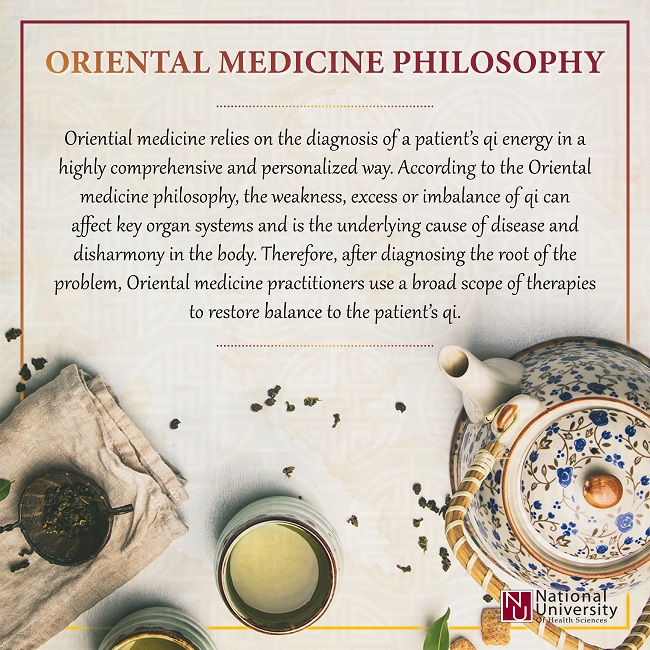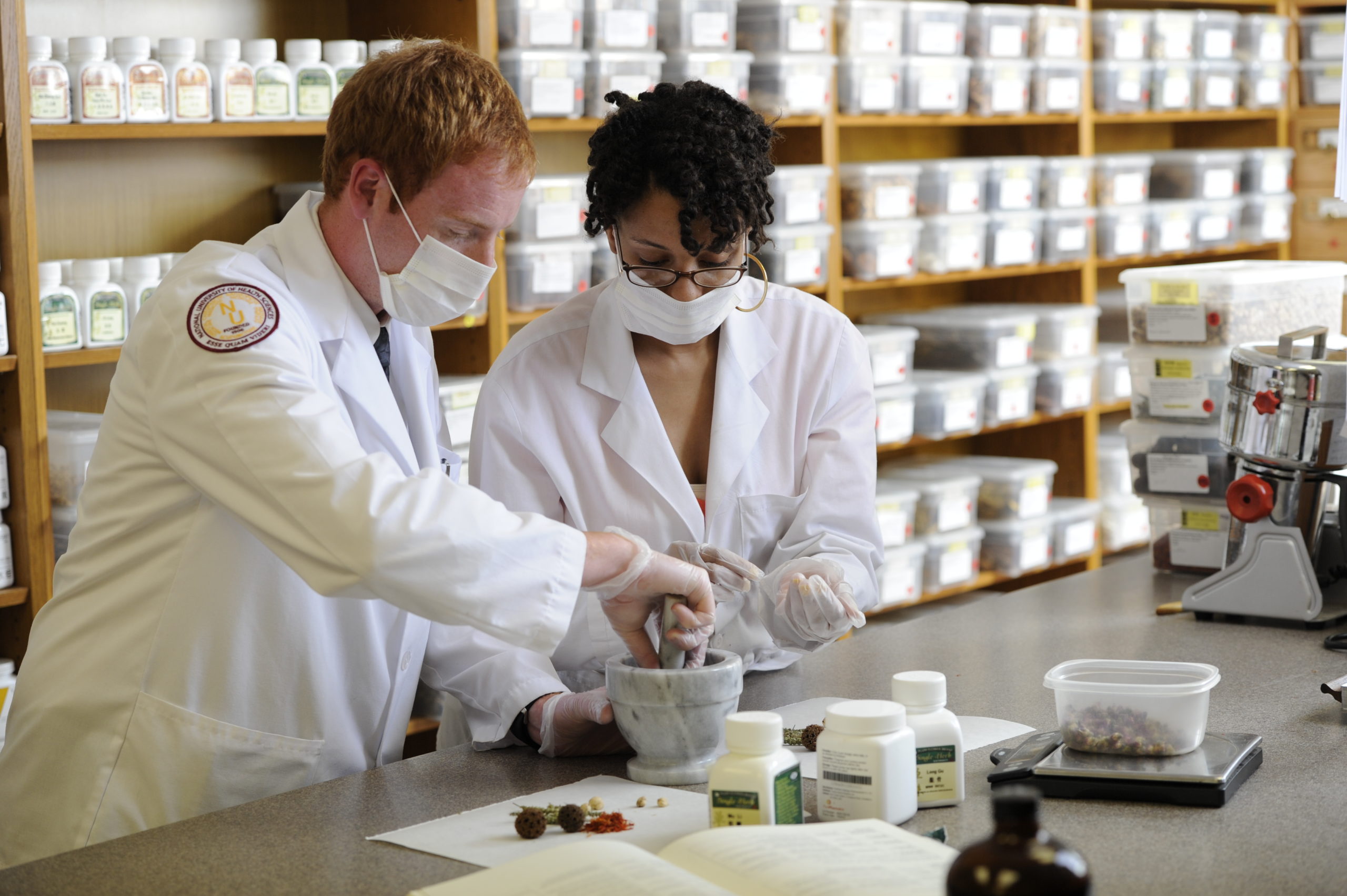After graduating from National University of Health Sciences (NUHS) with a degree in Oriental medicine, Cherlyn Coplon spent a year in China learning about integrative health care approaches that blend western and eastern medicine for more effective patient care. She says that, “Within the first day of being in clinic in China, I was so relieved because National University prepared me amazingly.” After returning to the States, Coplon successfully built her own solo practice in Chicago.
A degree in Oriental medicine can result in a rewarding and fulfilling career that allows you to help patients heal in a holistic way. Here are insights into what Oriental medicine is, what practitioners can do, and what types of Oriental medicine jobs are out there, to help you determine if it’s the right career for you.
What is Oriental Medicine?
Oriental medicine is a field within alternative medicine that is meant to heal and improve a patient’s overall health by rebalancing their qi (or chi) energy. At over 3,000 years old, it is the oldest codified system of medicine in the world!
Oriental medicine practitioners restore mental, physical and emotional health and balance by treating illness and disease through the Five Major Branches of Oriental medicine. These include acupuncture, Chinese herbal medicine, Oriental nutrition and dietary therapy, tui na or Oriental bodywork, and Tai Chi and Qi Gong.
An Oriental medicine practitioner can also use Chinese dietary therapy and the full range of traditional herbal medicine, which includes the recommendation of single herbs, complex herbal formulas, tinctures and patent herbal medicines in pill form.
What is the Oriental Medicine Philosophy?
Oriential medicine relies on the diagnosis of a patient’s qi energy in a highly comprehensive and personalized way. According to the Oriental medicine philosophy, the weakness, excess or imbalance of qi can affect key organ systems and is the underlying cause of disease and disharmony in the body. Therefore, after diagnosing the root of the problem, Oriental medicine practitioners use a broad scope of therapies to restore balance to the patient’s qi.
Oriental medicine practitioners rely on natural, non-invasive treatment methods including herbs, acupuncture, nutrition, mind/body exercise (such as yoga) and massage. These treatments can be used to provide relief for respiratory, eye, mental/emotional, musculoskeletal, gastrointestinal, reproductive system, mouth, ear and neurological disorders.

Benefits of a Career in Oriental Medicine
An increasing number of hospitals and integrative care clinics are providing Oriental medicine and acupuncture treatments in their facilities, as people of all ages are becoming more interested in alternative or complementary health care. This has resulted in an increased demand for skilled Oriental medicine practitioners—meaning more job growth, career opportunities and competitive compensation.
Oriental medicine practitioners enjoy lucrative careers with an added bonus—flexible work schedules. Since many Oriental medicine jobs allow you to choose the frequency of patients, you’ll be able to have the work/life balance that works best for you. You’ll have rewarding experiences and build deep personal connections with your patients, since practitioners are typically able to spend more time with patients than MDs.
What Oriental Medicine Jobs are Available?
Oriental medicine practitioners enjoy all the same career opportunities available to acupuncturists. Additionally, those with a Master of Science in Oriental Medicine (MSOM) degree are able to prescribe traditional herbal medicine to their patients. This provides even more flexibility in career options.
With a degree in Oriental medicine, you would be able to:
- Start your own practice
- Work as an associate in a group practice
- Work in integrative health care facilities, multidisciplinary clinics and medical centers
- Work in hospitals
- Teach, conduct research and publish academic works
- Work with an herb or acupuncture supply company
How to Become an Oriental Medicine Practitioner
If a career in Oriental medicine sounds like something that is for you (and you already have a Bachelor of Science degree), the NUHS Master of Science in Oriental Medicine program will provide you with comprehensive training in the five branches of Oriental medicine, as well as a deep understanding of the history, theory and philosophy behind the practice. You’ll also be fully immersed in traditional arts, gain a solid foundation in western science, and practice your skills in intensive clinical training in an integrative medical clinic.

To practice Oriental medicine, graduates must also pass the licensing examinations conducted by the National Certification Commission for Acupuncture and Oriental Medicine (NCCAOM).
Currently, 47 states and the District of Columbia require passage as a prerequisite for applying for a license.
To learn more about NUHS’ unique, integrative Oriental medicine program, check out our Career Guide to Becoming an Acupuncture and Oriental Medicine Practitioner or request further information about our application process today.
{{cta(‘b7d331ad-fee8-45d2-9abd-f26523a7e68e’)}}




0 Comments